Prophet Adam (AS) is a Prophet with whom all the Muslims, Jews, and Christians take pride. Though the story of Adam (AS) varies across Abrahamic Religions, the utmost respect given to Prophet Adam (AS) as a significant creature on the face of this Earth is maintained to date.
Prophet Adam (AS) was the first human ever created on Earth as is regarded as the father of the human race. His wife ‘Hawwa’ is similarly referred to as the ‘mother of mankind’. Prophet Adam (AS) is the physical as well as the spiritual father of humankind.
What Can We Learn From Life of Prophet Adam?
Allah sent the Holy Quran as a mercy for humans. It’s a universal book of Guidance. The Quran says in Surah Yousuf: “In revealing the Quran, we will recount to you the best of Narratives.” It is true that every verse of the Quran has a reflection for us. All the Prophet stories mentioned in the Quran from the first Prophet, Prophet Adam (AS) to the last Prophet, Prophet Muhammad PBUH, show an excellent lesson for Muslims.
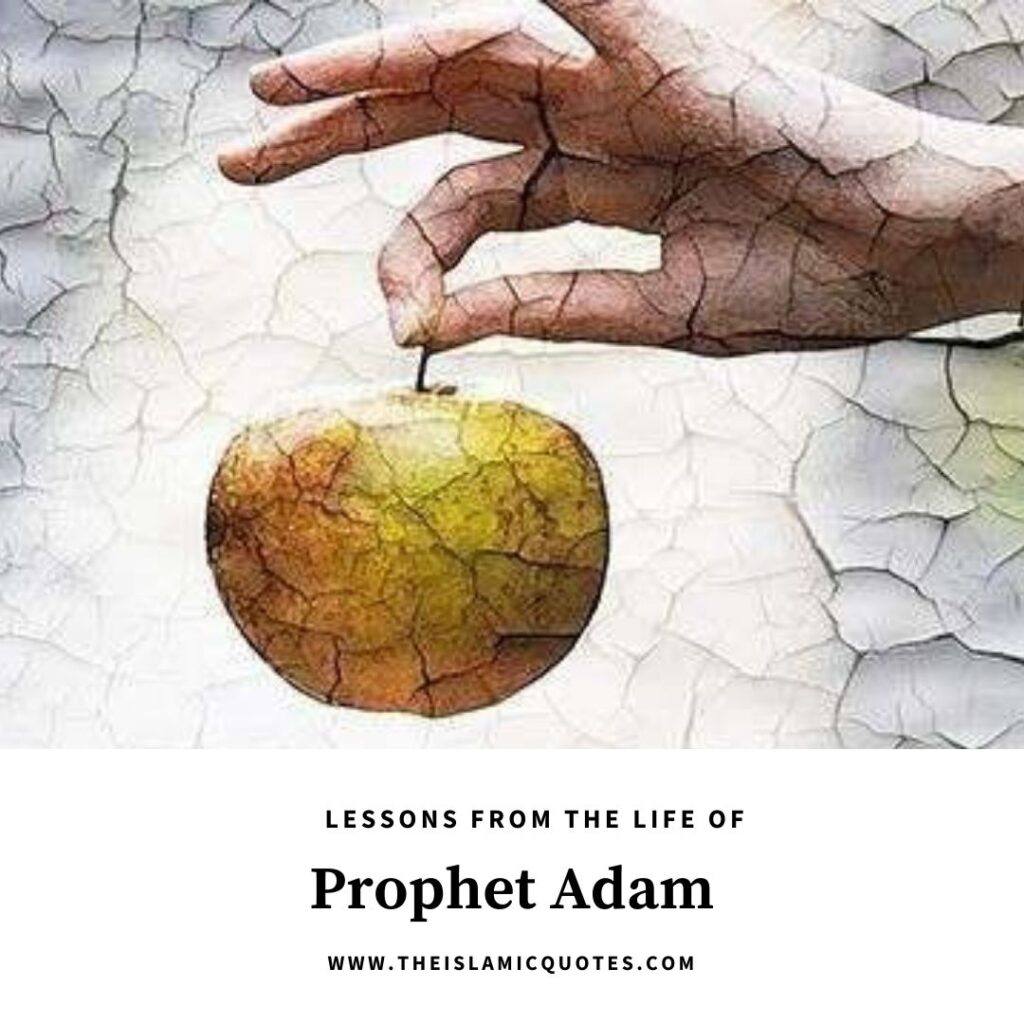
An Overview Of Prophet Adam(AS)’s Life
Following are the key points from Prophet Adam (AS)’s story. Having insight into the background will help us better understand how we can mold our life accordingly and strive towards being better Muslims.
Allah Honours Prophet Adam (AS)
Allah created Adam (AS) as the first man who was made from clay. Allah taught the Prophet the names of all the things and asked the angels to prostrate Adam (AS). This shows how vital was his position near all the other creatures.
Satan’s Pride
All the angels prostrated, except for Iblees. As Quran, Surah Al-Baqarah states: “He refused and was arrogant, and so became a disbeliever.” Iblees stance was he was superior as he was created from the fire whereas, Prophet Adam (AS) was created from the clay. Therefore, Iblees was expelled from heaven.
Dwelling in Paradise
Allah created Hawwa as Prophet Adam (AS)’s spouse, and they were given a place in Paradise. Satan, however, availed every opportunity to whisper evil into Prophet Adam (AS). He finally succeeded when he misguided Prophet Adam (AS) and Hawwa to the forbidden tree.

Prophet Adam (AS)’s Dua
As soon as Prophet Adam (AS) realized his mistake, he said the most heartfelt Dua, as stated below. Allah being the most merciful, accepted his repentance. Thus, prophet Adam (AS) and Hawwa were descended on this Earth.

In light of the above incidents, let’s have look at what we have learned from Prophet Adam (AS)’s story:
6. Reflecting on our purpose in life
Prophet Adam (AS) was sent on the Earth as a vicegerent, ie. Khalifa. We humans have a larger purpose of looking after the Earth as custodians. It is our primary duty to take utmost care of the Earth that Allah has made for us. To live peacefully and not spread mischief, that was Satan’s promise to Allah. Also, when Allah taught him names of all the things, it gives a strong message how important it is to seek knowledge, of world around us as well as of our Religion Islam.
5. Beware of Satan’s trap
Surah Sad in the Holy Quran discusses Allah’s and Iblees’ conversation. Satan asks Allah to give him respite till the day of judgment and promises to misguide humans by tempting them. He would try all means to make evil deeds beautiful for us, so we are attracted towards them. Therefore, we should never forget to seek refuge in Allah from Satan’s temptation and fall in his traps.
4. Repentance is the key to turn to Allah
Prophet Adam (AS)’s humility is evident when he turned to Allah immediately and said a beautiful Dua. A human might fall into the trap of Satan in everyday life. To linger on to those sins causes the faith to be tarnished. However, to realize, confess and seek forgiveness immediately near Allah are from the attributes of the Prophets. Here are Powerful Duas to Ask Allah for Forgiveness of Sins.
3. Unity is strength
Even though the human race is divided into diverse caste, color, and creed. However, our father, Prophet Adam (AS), was the same. Therefore, we all are from the same person, and we create divisions ourselves. Thus, humans all over should look at the common grounds of one father rather than disputing over trivial differences.
2. Always Have Faith in Allah
One of the main reasons Satan was devastated was that he lost his hope for Allah’s mercy. He did not confess and repent as he did not trust Allah’s mercy as Prophet Adam (AS) did. Faith in Allah Is the cornerstone of a Muslim, and this belief helps in crossing any hurdle in life successfully. A strong faith rekindles positivity in humans and helps in maintaining a stronger bond with Allah and His creation.
1. Jealousy: The root cause of evil
Satan was jealous of Prophet Adam (AS) merely because he thought Prophet Adam (AS) was made up of clay that was inferior and not from the superior fire he was made up of. Due to this Jealousy, Satan was removed from the ranks of esteemed angels, was expelled from Paradise, and became Allah’s biggest enemy until the Day of Judgment. Jealousy is highly condemned in Islam. If you’re having trouble controlling your jealousy, I recommend learning these Duas to Control Negative Emotions.

Adam (AS) is one of the 25 Prophets that are mentioned in the Holy Quran. Each of the Prophets is a role model for us. Muslims must know that Islam strictly rejects the Christianity concept of ‘Original Sin.’ I.e., humans are born sinners because of the action of Prophet Adam (AS). This has been negated clearly in The Holy Quran as “And no bearer of burdens shall bear another’s a burden.” (Quran 35:18). Each one of us is born free from any sin. Allah’s quality of ever and extremely merciful forgave Adam (AS) and Hawwa. Allah has a special bond with Adam and due to that commanded the angels to bow down. Let’s give in our best to adopt the lessons that Prophet Adam (AS)’s life shows us so we can succeed in this world and the Hereafter.

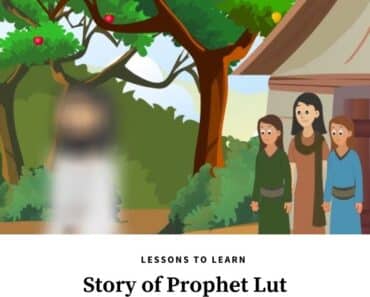
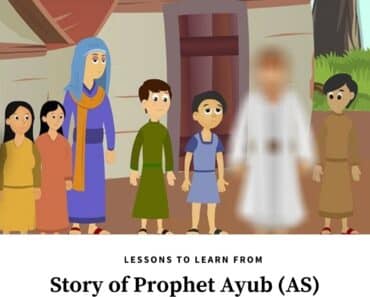
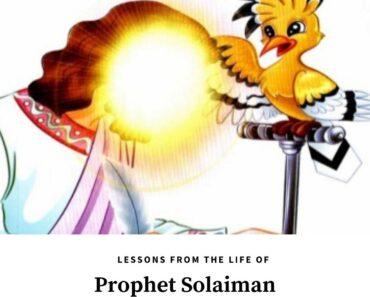

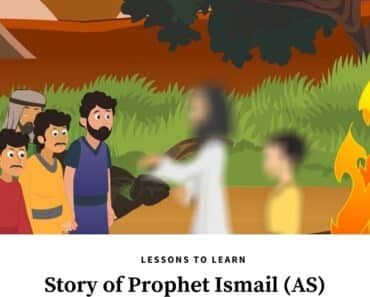

Masha Allah
JazakAllah and Best regards,
Team TheIslamicQuotes
Thank you so much for your time and efforts and excellent detailed informational explanations greatly appreciated..Alhamdulillah Jazakallahu khairan.